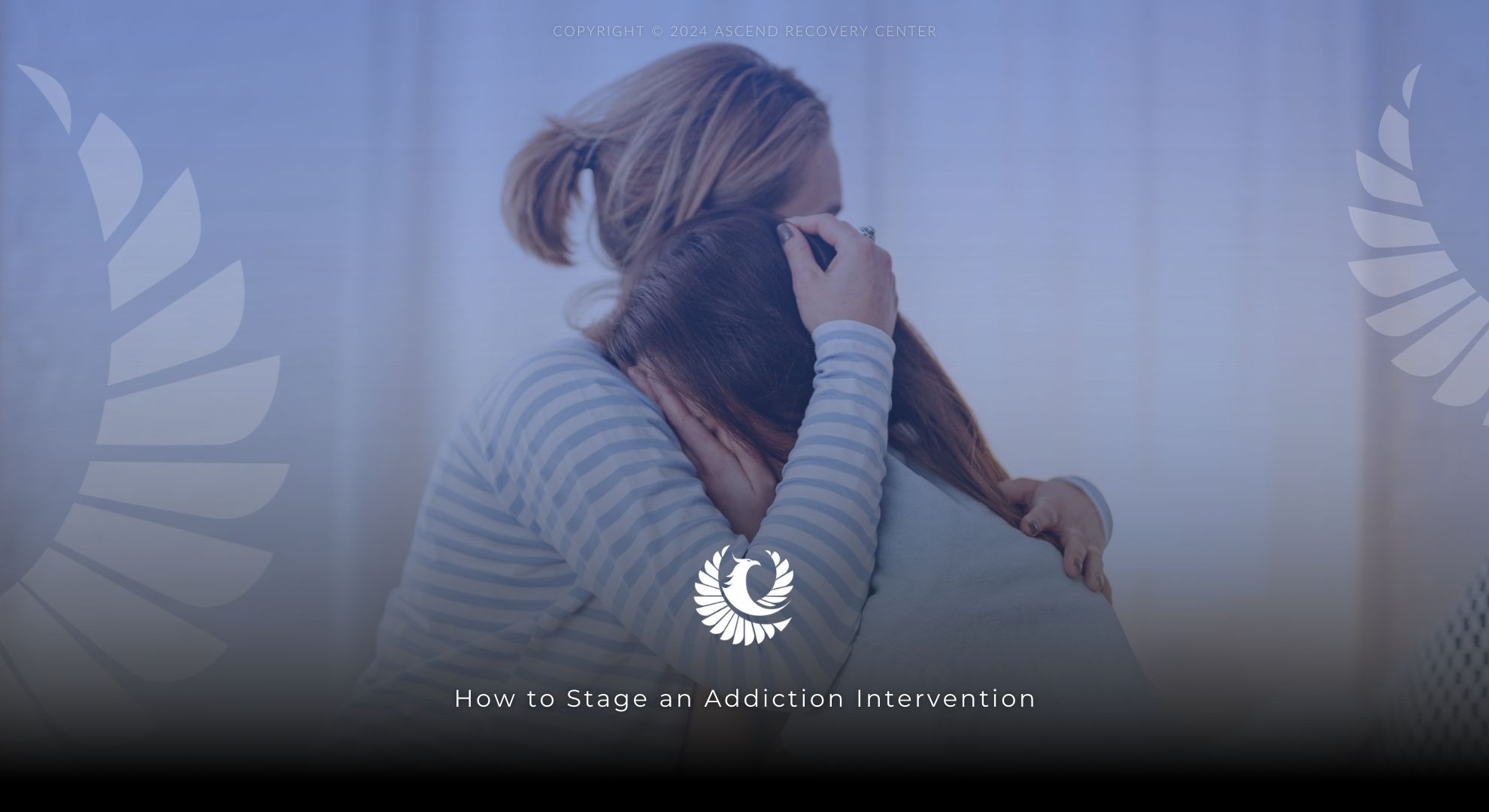Drug and alcohol addiction can be life-threatening conditions. Substance abuse and addiction can lead to long-term health complications, mental health symptoms, relationship strain, and more.
Living with addiction can be challenging. Loving someone who struggles with drug and alcohol abuse can be difficult, too. Substance abuse can change the way people feel, think, and behave. It can turn someone you love into a different person.
Drug and alcohol abuse can change how a person’s body and brain work. These changes can make it nearly impossible for people to stop using addictive substances without professional treatment. However, most people with drug and alcohol addiction never get the help they need to recover.
If someone in your life lives with a substance use disorder (SUD), you may want to help–but how?
Holding an intervention can help you convince an addicted loved one to seek treatment. This article will detail the intervention process and how to host a successful intervention. You will also learn how to recognize the need for an intervention.
Reach out to the Ascend Recovery specialists now to learn about our treatment programs. Our specialists can connect you with intervention specialists or help you find the right level of treatment for your loved one. Contact us today to get the help you need.
What is an Intervention?
An intervention is a carefully planned gathering. During an intervention, close family members and friends express concern for someone struggling with substance abuse or addiction.
During the intervention meeting, people take turns telling the addicted person how the addiction has impacted their relationships. The intervention team offers immediate admission into an addiction treatment center. They may also describe the consequences that will occur if the addicted person refuses to seek immediate treatment.
Planning an intervention can help people identify and correct any enabling behaviors. Family and friends often work with a professional interventionist while planning the intervention.
A professional interventionist can help people stage an effective intervention. They provide support and resources before, during, and after the intervention. A trained interventionist can also help people understand how to help their loved ones throughout the recovery process.
When Should I Stage an Intervention?
The first step in staging an intervention is to recognize your loved one’s addiction. Drug and alcohol abuse can change a person’s appearance, behaviors, and emotions. Recognizing signs of addiction can help you stage a timely intervention.
Some signs of addiction include:
- Noticeable changes in a person’s appearance, hygiene, sleep patterns, or appetite
- Sneaky behaviors or dishonesty
- A new group of friends
- Isolation
- New or worsening symptoms of mental illness
- Dangerous or risk-taking behaviors
- New legal or financial trouble
- The presence of drugs or related items
- Using drugs or alcohol more often, or using higher doses/amounts
- Neglecting responsibilities, hobbies, or relationships
- Experiencing withdrawal symptoms when they can’t take drugs or drink
People who are addicted to drugs and alcohol do not choose to use these substances–their body depends on them to function.
Quitting can be challenging, but professional treatment can help. If you believe your loved one is addicted to drugs or alcohol, you must try to help them get the treatment they need to recover.
How to Host an Intervention: A Step-By-Step Guide
Many interventions are successful at convincing an addicted person to seek treatment. However, a successful intervention requires careful planning and preparation.
Here is a step-by-step guide to staging an intervention.
1. Find Support
A professional interventionist can help you and your team plan the most effective intervention possible. The interventionist will connect you with resources and support at every stage of the process.
2. Gather your team
Your intervention team should consist of:
- Family members
- Close friends
- Supportive co-workers, when appropriate
Many professional interventionists advise against including children or elderly family members. People with active addictions should also not attend the intervention.
3. Plan
Determine where and when you will hold your intervention. Select a location with adequate space for everyone to be comfortable. Choose a time when your loved one is least likely to be under the influence of drugs or alcohol.
4. Learn about addiction
Educate yourself about addiction, treatment, and recovery. The more you know about the recovery process, the better able you will be to support your loved one.
A professional interventionist can be an excellent source of information and support as you plan your intervention. They can help you find support groups, resources, and a local treatment facility to admit your loved one.
5. Write a statement
During the intervention, each member of the team should read a written statement about the impact of your loved one’s substance use. An interventionist can help your team prepare these statements.
Your intervention team must also decide the consequences if your loved one refuses to get help. These may include:
- Refusing to give them money
- Refusing to bail them out of jail
- Requiring them to face the consequences of their addiction at work or school
- Not allowing the addicted person to live in your home
It is vital to decide on consequences before the intervention and stick to them afterward, if necessary.
6. Practice
An intervention can be very emotional. However, staying focused on the ultimate goal of helping your loved one begin treatment is essential. Practicing your intervention from start to finish can help you stay calm and on track–even when emotions run high.
Find Intervention Support Today
If you or someone you love struggles with substance abuse or addiction, you are not alone. Contact the Ascend Recovery specialists to learn about staging an intervention or explore your treatment options.








